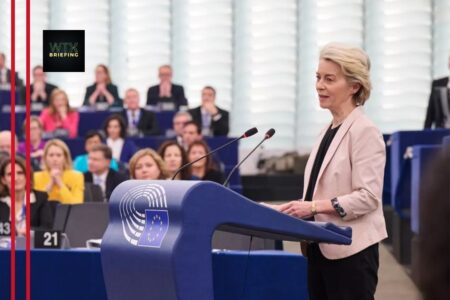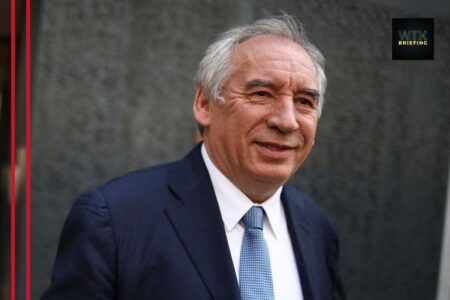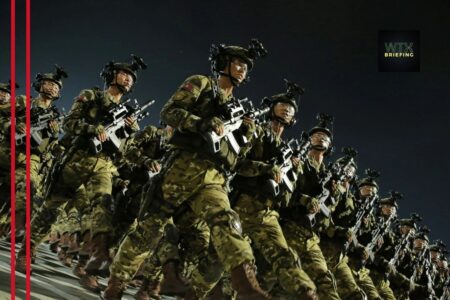At a rain-soaked train station in Dublin, with just hours left in the general election campaign, a first-time candidate is lamenting how little time they have left.
The three weeks, they say, have been gruelling, but they know now what they didn’t know 21 days ago, such as the paradox of elections, and the experience is won through trial and error, and all you can hope for as the polls open is that you’ve left it all on the field.
In Dublin Central, Wicklow, and Cork South Central this morning, the three leaders of the medium-sized parties of Irish politics will cast their own ballots, presumably for themselves, and will wonder: Have they done enough?
The first indication of the success or otherwise of each campaign will come at 10pm today, when an exit poll result is announced live on RTÉ. However, this will only give parties their share of the overall first-preference vote. The wait to find out constituency-level details will take until boxes are opened on Saturday morning and tally teams, those unsung masters of the count centre, begin marking votes as they pass by. At that point, there will be some clarity about who has taken early seats, but formal announcement will not come until the afternoon, when the glory of PR-STV kicks in and transfers are assessed.
It is at that point that Simon Harris, Micheál Martin and Mary Lou McDonald will know of their paths to power and whether their respective pitches to the public have been enough.
Having come into the election on the back of possibly the party’s worst month in the last four and a half years, it has been a quietly solid campaign for Ms McDonald and her party.
 It has been a quietly solid campaign for Mary Lou McDonald and Sinn Féin. Picture: Maxwells
It has been a quietly solid campaign for Mary Lou McDonald and Sinn Féin. Picture: Maxwells
They have avoided any major controversies, getting tripped up only on a proposal to initiate an independent review of RTÉ’s coverage of Gaza, which probably didn’t cost them votes as much as it did airtime.
But more fundamental questions for the party on its abilities to handle the economy are what trouble some voters and it is this that Fine Gael has sought to jump on, rolling out what Ms McDonald has dubbed “scaremongering” and a final day’s worth of blitzes on the fear that Sinn Féin will tank the economy.
Having pinned much of the first two weeks of the campaign on Mr Harris and his famed New Energy, Fine Gael has pivoted in the face of mis-step after mis-step, from Michael O’Leary’s comments about teachers at a Fine Gael event on the first full day of campaigning, to John McGahon, to the events of Kanturk last week.
 Having pinned much of the first two weeks of the campaign on Simon Harris and ‘New Energy’, Fine Gael changed tack. Picture: Maxwell’s
Having pinned much of the first two weeks of the campaign on Simon Harris and ‘New Energy’, Fine Gael changed tack. Picture: Maxwell’s
Fine Gael has since changed tack and has now sought to be the party of prudence, of stability, of experience. To that end, Public Expenditure Minister Paschal Donohoe has been everywhere in recent days.
Somewhat sidelined in the early campaign, Mr Donohoe is, Fine Gael hopes, their ace in the hole. His steady hand was used on Fridays throughout covid-19 to reassure the nation and Fine Gael is attempting to repeat the trick here. On Thursday, the last day of campaigning, he was side by side with the Taoiseach in Lucan as the two men continued their criticisms of Ms McDonald’s party.
“A vote for Sinn Féin you could end up skint,” the Taoiseach said, adding: “Don’t end up with buyers’ remorse.”
Mr Donohoe said: “”If you lend them your vote, you lend them your future. You might not get your future back. Sinn Féin have not been able to answer the most basic economic questions in this campaign. Not one,” he said.
Across Dublin, Ms McDonald called it “a mark of desperation”.
“I think he, like us, recognises that momentum for change. He recognises that the momentum for change is behind Sinn Féin and he knows that to change the government, Sinn Féin has to drive that.
“So we are encouraging people, asking people, to vote for us, to lend us your vote, to allow us for the first time to have a government led by Sinn Féin.”
Meanwhile, as he met a reindeer in an Arklow car park (really), the leader in the best position to be Taoiseach was as definitive, but less acerbic in his words towards Sinn Féin. Micheál Martin has ruled out Sinn Féin as a partner, but his party’s quietly effective campaign has put it in a position where it may be the largest party and, if the gulf to Fine Gael is wide enough, they may need to make a call to Cabra.
“The bottom line is in 2020 we didn’t go in with Sinn Féin. We didn’t go in with Sinn Féin in 2016 and the bottom line is that their policies are not compatible with ours,” he said.
 Micheál Martin has ruled out Sinn Féin as a partner. Picture: Niall Carson/PA Wire
Micheál Martin has ruled out Sinn Féin as a partner. Picture: Niall Carson/PA Wire
In truth, it is Ms McDonald who has the toughest route to Government Buildings. Having been consistently ruled out as a coalition partner by Fine Gael and Fianna Fáil, Sinn Féin must somehow cobble together a left-wing coalition that reaches the new Dáil majority of 88 seats.
In 2020 her party achieved 35 seats on 24.5% of the vote. This time, her party is polling closer to 20% and will need to somehow do a loaves and fishes with its own vote to get second and third candidates over the line.
For Fianna Fáil and Fine Gael, though both leaders insist they’re taking nothing for granted, there is a simpler path, one enunciated by the Taoiseach in an interview with this newspaper on Wednesday and again on Thursday as he urged voters to “consider what a government looks like” and continue their preference for centrist parties.
He denied that this was “desperation” when Labour leader Ivana Bacik’s response was put to him, but Labour could be natural bedfellows of the parties which had implicitly and expressly run the country for the last eight years. That would give Simon Harris and Micheál Martin a chance to renew their parties’ vows, even if their own union is barely seven months in.
As the dust settles on Saturday, there will be post-mortems, there will be analysis, there will be what Americans call “Monday morning quarterbacking”. The question of whether more could have been done will rest mostly, however, on the leaders of the parties.
The general election campaign is over and it’s time to face the music




